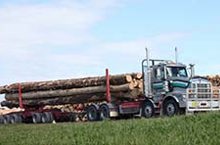
While forestry bears much of the burden, New Zealand's Emissions Trading Scheme (ETS) is being let down by several critical sectors according to a new study.
If five sectors were better regulated, the impact of New Zealand’s main tool in the fight against climate change could be heightened, say University of Auckland Business School Energy Centre researchers.
The authors say the agricultural sector’s greenhouse gas emissions rank first among all industry emissions and, practical, impactful solutions to curtail emissions from this sector have not been available.
Their study shows that, along with agriculture, transport, energy, petroleum and diesel, and waste, are underperforming.
While the ETS effectively reduces emissions on a broad scale, the researchers: Dr Le Wen, Associate Professor Stephen Poletti, Dr Selena Sheng and Simon Tao, say it's failing to spur economic expansion and curtail emissions simultaneously.
In their paper, Enhancing New Zealand’s emissions trading scheme: A comprehensive sector-level assessment for a stronger regulatory framework, the authors explore the emission reduction potential of the ETS by sector.
Compared to emission trading schemes utilised in China and the EU, which have received extensive academic attention, the researchers say relevant analyses regarding the NZ ETS is scant.
“We wanted to understand where the scheme’s effectiveness comes from and where it’s lacking,” says lead researcher, Business School PhD candidate, Simon Tao.
“We show that the ETS could better stimulate the economy and reduce greenhouse gas emissions if the planning authorities focus on those five key sectors.”
The study points out that the energy, waste and agriculture sectors are key to New Zealand’s economy and major sources of emissions.
Because cutting investments in these areas to reduce emissions could slow economic growth, Mr Tao says the Government should look at ways to lower emissions while encouraging growth through investing in innovation and energy alternatives like hydrogen.
“There’s an assumption that market participants will comply with their emission reduction commitments, but that’s a hard task when no substantial initiatives are available,” adds senior research fellow Dr Selena Sheng.









